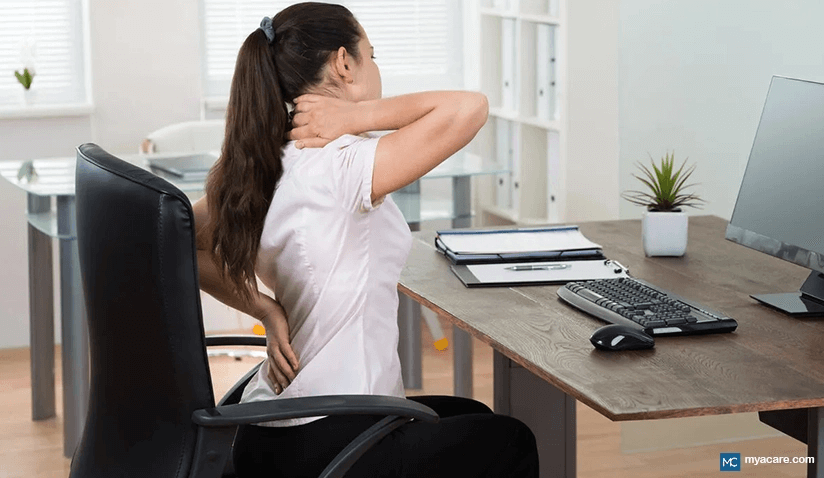10 Everyday Habits That Are Ruining Your Spine Health

Your spine is the structural foundation of your body, supporting movement, balance, and posture. Yet, most people unknowingly develop habits that silently damage their spinal health. Over time, these practices can lead to chronic back pain, disc degeneration, posture problems, and even nerve compression. In India, back pain is one of the most common reasons for doctor visits, and poor daily habits are a major contributing factor.
This blog uncovers 10 everyday habits that are harming your spine and provides actionable tips to protect it. Whether you sit at a desk all day, drive long hours, or sleep poorly — this guide is for you.
List of everyday habits
1. Prolonged Sitting
One of the most common spine-damaging habits is sitting for extended periods, especially with poor posture. Whether working from home or in an office, sitting compresses the discs in your lower back, weakens core muscles, and tightens the hip flexors.
- Leads to lumbar disc degeneration
- Causes poor posture and muscular imbalances
- Increases risk of chronic lower back pain
Tip: Take short standing or stretching breaks every 30 minutes. Use ergonomic chairs with lumbar support and maintain a neutral spine while seated.
2. Slouching While Using Screens
Whether it’s using your phone, laptop, or watching TV, most people tend to hunch or slouch. This forward head posture, often called “tech neck,” puts excess pressure on the cervical spine and upper back.
- Causes neck pain, shoulder stiffness, and early wear on spinal discs
- May lead to cervical spondylosis over time
Tip: Raise your screens to eye level. Practice chin tucks and shoulder blade squeezes to combat forward-head posture.
3. Lifting Objects Incorrectly
One of the most common spine-damaging habits is sitting for extended periods, especially with poor posture. Whether working from home or in an office, sitting compresses the discs in your lower back, weakens core muscles, and tightens the hip flexors.
- Leads to lumbar disc degeneration
- Causes poor posture and muscular imbalances
- Increases risk of chronic lower back pain
Tip: Take short standing or stretching breaks every 30 minutes. Use ergonomic chairs with lumbar support and maintain a neutral spine while seated.
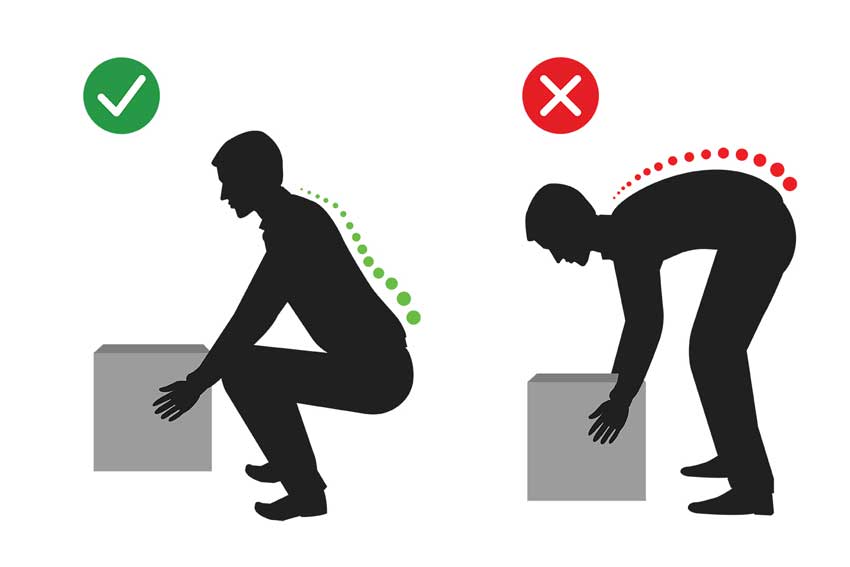
4. Sleeping on a Poor Mattress
Your spine spends a third of the day resting. A sagging or overly soft mattress doesn’t support the natural curves of the spine, leading to misalignment.
- Disrupts spinal alignment during sleep
- Can result in morning back pain and restless sleep
Tip: Choose a medium-firm mattress that m
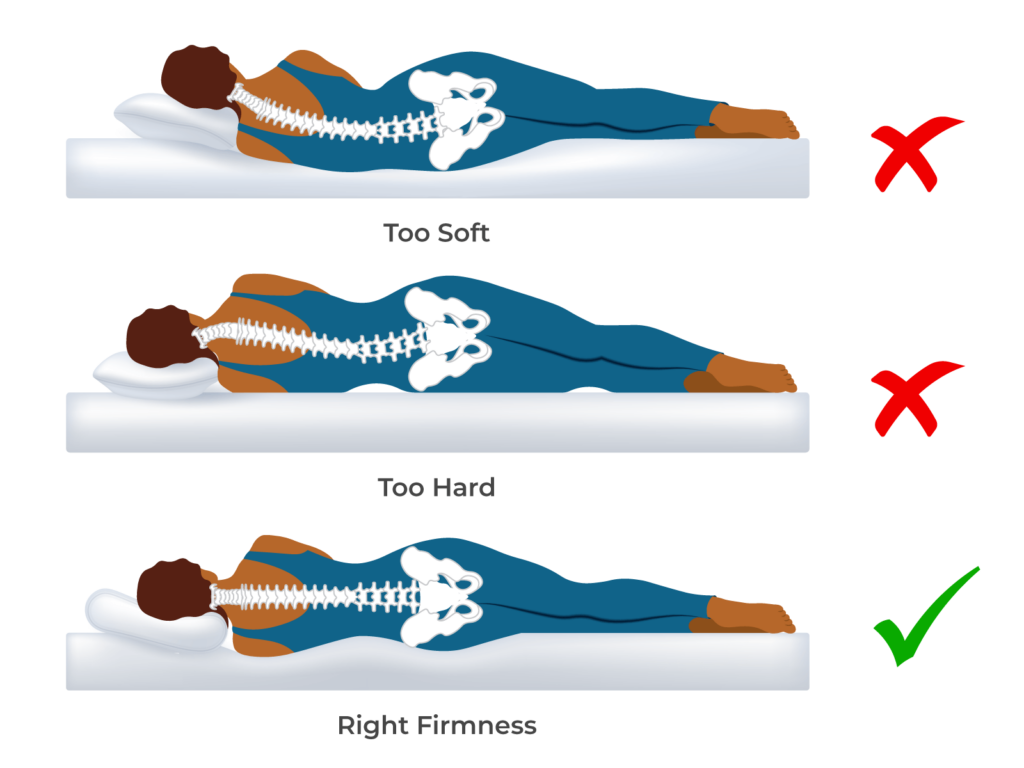
5. Neglecting Core Strength
The core muscles — including the abdominals, obliques, and lower back — play a vital role in supporting the spine. Weak core muscles mean the spine has to do more work to stabilize the body.
- Increases risk of spinal strain and poor posture
- May lead to chronic lower back pain
Tip: Incorporate core-strengthening exercises like planks, bridges, and leg raises into your fitness routine. Even 10–15 minutes daily can make a difference.

6. Wearing Improper Footwear
Footwear with inadequate arch support, like flip-flops or worn-out shoes, affects your walking gait and posture. This, in turn, misaligns the pelvis and spine.
- Causes uneven pressure on spinal discs
- Can lead to lower back, hip, and knee pain
Tip: Wear supportive shoes with good arch and heel support. If needed, use orthotic inserts recommended by a physiotherapist or orthopaedic expert.
7. Ignoring Minor Back Pain
Many people dismiss early signs of back discomfort, assuming it will go away. However, chronic back pain often starts with untreated minor issues that worsen over time.
- Delays diagnosis of serious spinal conditions like herniated discs, spinal stenosis, or scoliosis
- May result in irreversible damage
Tip: Seek early evaluation from a spine specialist if back pain persists for more than a few days or is accompanied by leg numbness or weakness.
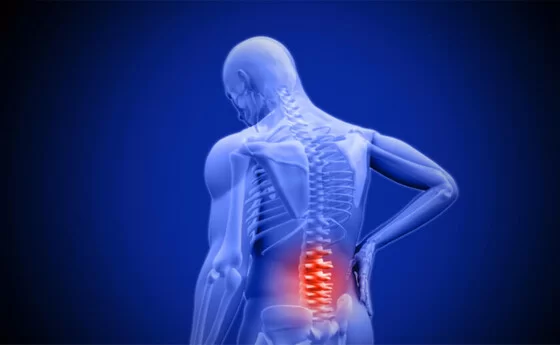
8. Carrying Heavy Bags on One Shoulder
Whether it’s handbags, school bags, or laptop bags, carrying weight unevenly places extra load on one side of the spine. Over time, this can cause muscular imbalances and spinal asymmetry.
- Leads to posture imbalances and shoulder/neck pain
- Can cause scoliosis-like curvature if habitual
Tip: Use a backpack with even weight distribution or alternate shoulders regularly. Ensure the bag weight is no more than 10–15% of your body weight.

9. Lack of Movement or Exercise
A sedentary lifestyle not only weakens the spine-supporting muscles but also limits blood flow to spinal discs, which rely on movement to stay healthy.
- Leads to disc dehydration and degeneration
- Increases stiffness and back pain risk
Tip: Stay active with regular walking, stretching, swimming, or yoga. Aim for at least 30 minutes of movement daily.

10. Poor Posture While Driving
Long commutes with poor seat posture — slumped shoulders, a curved lower back, and head jutting forward — can strain the lumbar and cervical spine.
- May result in lower back pain and neck stiffness
- Increases chances of spinal misalignment
Tip: Adjust your car seat to maintain an upright position with lumbar support. Your knees should be at hip level, and your head aligned with your spine.
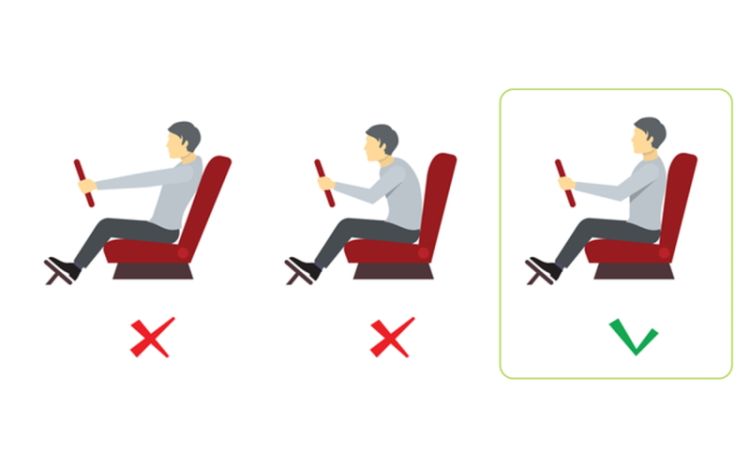
Final Thoughts: Small Changes, Big Impact
Spine damage doesn’t always come from traumatic injuries. Often, it’s the small, daily habits that add up over time. The good news is that awareness is the first step toward prevention.
Making small, conscious changes — like improving posture, staying active, using ergonomic furniture, and listening to early warning signs — can significantly improve your spinal health.
At WeAreSpine, our expert team of spine specialists helps patients not only recover from spinal issues but also adopt lifestyle habits that prevent further damage. If you’re experiencing chronic back or neck pain, don’t ignore it. Early diagnosis and the right guidance can make all the difference.
Want to Learn More?
Explore expert-authored blogs and treatment insights at WeAreSpine Blogs, or contact us to consult one of Mumbai’s leading spine care specialists.
